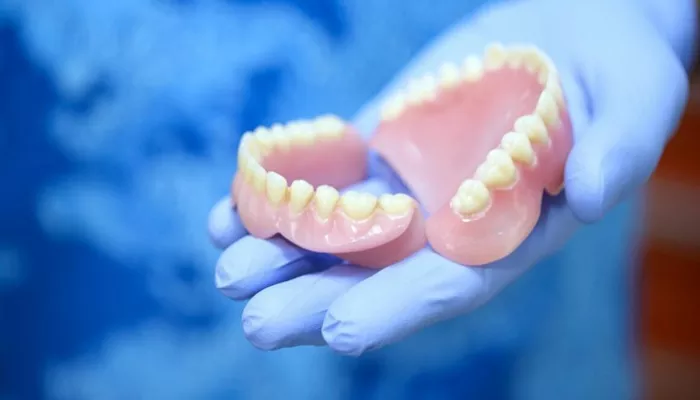Dentures are an essential solution for individuals who have lost their natural teeth due to various reasons such as aging, gum disease, or trauma. The primary goal of dentures is to restore functionality and aesthetics, allowing individuals to eat, speak, and smile confidently. To achieve this, modern dentures are crafted from a range of materials that mimic the appearance and function of natural teeth. In this article, we will explore the most natural dentures and the materials used in their construction, focusing on their characteristics, benefits, and how they contribute to a more lifelike appearance.
Introduction to Denture Materials
The materials used in dentures significantly influence their comfort, durability, and aesthetic appeal. The two main components of dentures are the base (or plate) that resembles the gums and the artificial teeth that replace missing natural teeth. Understanding the different materials available helps patients make informed decisions about their dental prosthetics.
Historically, dentures were made from ivory or metal, but advancements in dental technology have led to the development of more effective materials. Today’s dentures are primarily made from acrylic resin, porcelain, composite resins, and various flexible materials. Each type of material has unique properties that affect how natural the dentures look and feel.
Types of Denture Bases
Acrylic Resin
Acrylic resin is one of the most common materials used for denture bases. It is a lightweight plastic that can be easily molded to fit the contours of a patient’s mouth. Acrylic resin is favored for its:
Natural Appearance: Acrylic can be tinted to match the color of natural gums.
Comfort: The material is soft enough to provide a comfortable fit against sensitive gum tissue.
Adjustability: Dentists can easily adjust acrylic bases for a better fit over time.
However, acrylic resin does have some drawbacks. It can be prone to staining and may wear down faster than other materials if not properly maintained.
Flexible Thermoplastics
Flexible thermoplastics are another option for denture bases. These materials offer greater flexibility compared to traditional acrylics. They are particularly beneficial for patients with sensitive gums as they provide a more comfortable fit.
The advantages include:
Enhanced Comfort: The pliable nature of these materials reduces irritation.
Natural Look: Flexible bases can mimic the texture of natural gum tissue more closely than rigid acrylics.
Despite their benefits, flexible thermoplastics may not be as durable as acrylic or porcelain options.
Metal Frameworks
Metal frameworks are often used in partial dentures where strength and retention are critical. Common metals include cobalt-chromium alloys which provide:
Durability: Metal frameworks are robust and can withstand substantial chewing forces.
Precision Fit: They offer a secure fit that can enhance stability during use.
However, metal frameworks may not provide the same aesthetic appeal as other materials since they can be visible in the mouth.
Types of Denture Teeth
The artificial teeth used in dentures can also be made from various materials. The most common types include:
Porcelain Teeth
Porcelain is renowned for its aesthetic qualities. These teeth closely resemble natural teeth in both appearance and texture.
Key benefits include:
Natural Aesthetics: Porcelain teeth reflect light similarly to natural enamel, making them highly lifelike.
Durability: They are resistant to wear and tear over time.
However, porcelain teeth can be brittle and may chip or break if subjected to excessive force.
Acrylic Teeth
Acrylic teeth are another popular choice due to their affordability and ease of use. They offer several advantages:
Cost-Effective: Acrylic teeth are generally less expensive than porcelain.
Easier Adjustments: They can be easily modified by dentists if adjustments are needed.
On the downside, acrylic teeth may wear down faster than porcelain and can become stained over time.
Composite Resin Teeth
Composite resin teeth combine elements of both acrylic and porcelain.
They aim to provide a balance between aesthetics and durability:
Improved Stain Resistance: Composite resins tend to resist staining better than standard acrylics.
Good Aesthetic Qualities: They can be designed to closely match the color of natural teeth.
However, composite resin may not be as durable as porcelain.
Factors Influencing Material Choice
When selecting denture materials, several factors should be considered:
Aesthetic Preferences: Patients seeking a natural look may prefer porcelain or high-quality composite materials.
Budget Constraints: Acrylic options tend to be more affordable but may require more frequent replacements.
Comfort Needs: Individuals with sensitive gums might benefit from flexible thermoplastics.
Durability Requirements: Patients who require stronger solutions for chewing might opt for metal frameworks or porcelain teeth.
Maintenance And Care
Proper maintenance is crucial for prolonging the lifespan of dentures regardless of the materials used. Here are some tips for caring for dentures:
Daily Cleaning: Clean dentures daily using a soft brush designed specifically for dental appliances.
Avoid Harsh Chemicals: Do not use bleach or abrasive cleaners as they can damage denture surfaces.
Soaking Solutions: Use soaking solutions recommended by dental professionals to keep dentures moist and clean.
Regular Check-Ups: Visit your dentist regularly for adjustments and check-ups to ensure proper fit and function.
Conclusion
Choosing the right materials for dentures is essential for achieving a balance between aesthetics, comfort, and functionality.
Modern advancements in dental technology have provided patients with various options that closely resemble natural teeth while ensuring durability and ease of use. Whether opting for acrylic resin bases with porcelain or composite resin teeth or exploring flexible thermoplastic options, understanding these materials helps patients make informed decisions about their dental health.
Related topics:

